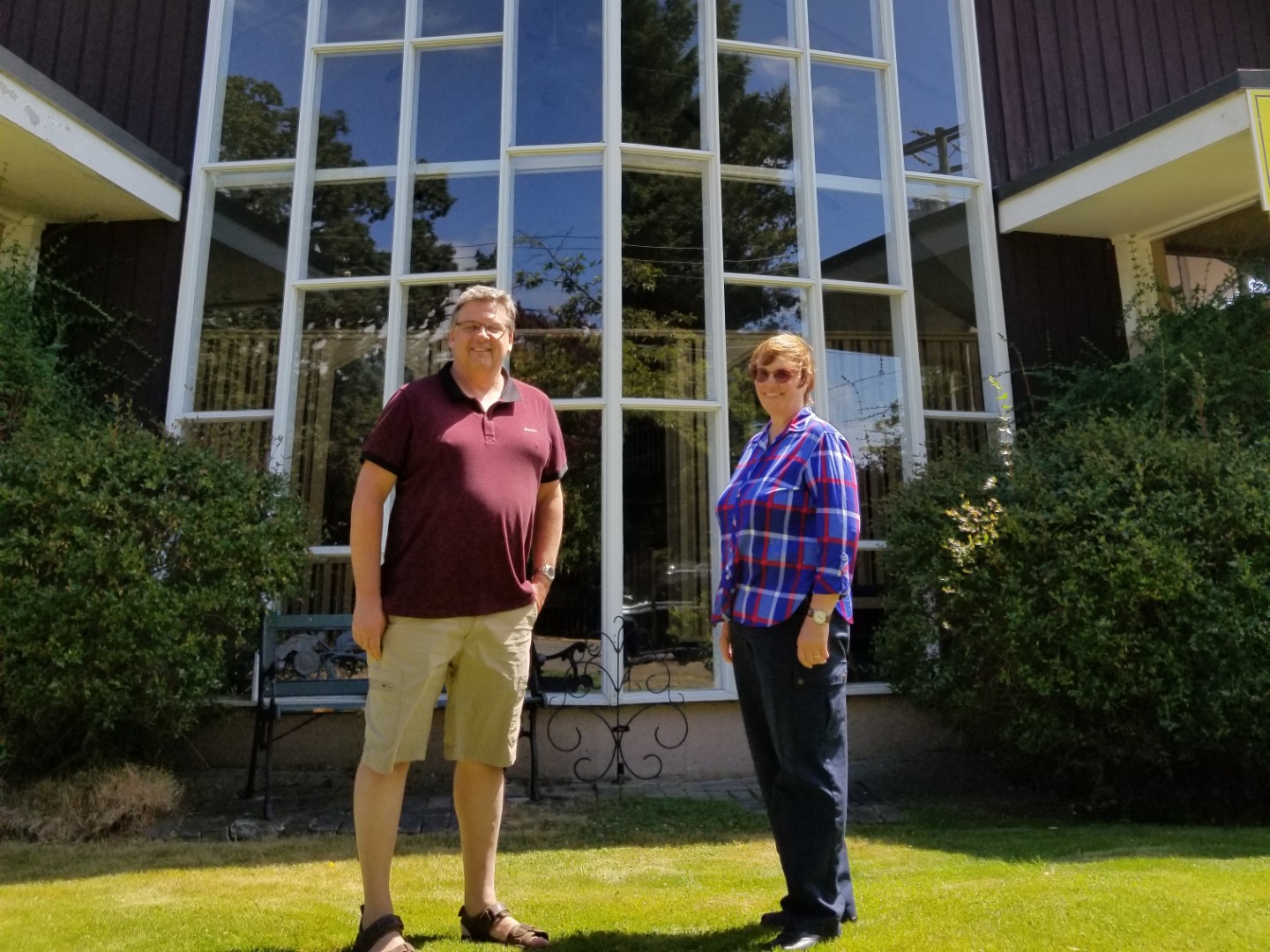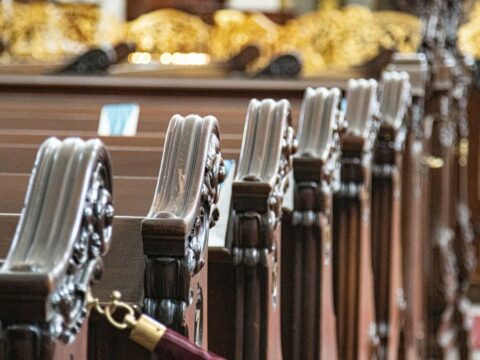Two communities of faith in British Columbia have amalgamated and adopted a new name — one that will sound familiar to readers of this publication.
St. Aidan’s United and Cadboro Bay United, in Victoria, voted to come together last November. In May, they selected the name Broad View United and merged at the end of that month. The congregation identifies as progressive, said Cadboro Bay’s Rev. Mark Green, and the person who suggested it liked the idea of being broad-minded, or taking a broad view.
You may unsubscribe from any of our newsletters at any time.
“Broad View to me implies openness, inclusivity, diversity, all pillars of our church,” read part of the submission email. “‘Simple’ name. Not intimidating. Inviting. May trigger curiosity.”
More on Broadview: The top 10 stories from Broadview’s first year
Rev. Cheryl Black, who was lead minister at St. Aidan’s, said they had specific criteria in mind when they asked for suggestions. “We didn’t want a settler name. We didn’t want a name of the region. We wanted something that spoke about the nature of the congregation rather than the location.
“And this one kind of rolls off your tongue.”
The naming committee put “Broad View” under the microscope, evaluating it for clarity, logistics and visual appeal. It found that the name had “punch,” while offering a range of graphics options and available online domain names.
Philosophically, the words “broad” and “view” could be taken literally and figuratively, the committee said: The view from the site is literally broad and open, while a broad perspective on others underscored a “compassionate walk through faith and our acceptance for others as a United Church congregation.”
Psychologically, it also “creates a subtle yet recognizable association with the publication even though it is spelled differently,” the committee noted. “This association is positive as it evokes the social justice journeys captured in the magazine.”
Indeed, there are many Broadview readers at Broad View, Green said. “We come from a long tradition of supporting the magazine, its editorial….The quality of what it does resonates with the progressive nature of who we are,” he said.
People had three to four weeks to make submissions. After the naming committee made its recommendation, “Broad View United” was put to an online vote. About 70 percent of respondents agreed or strongly agreed with the new name, Green said.
“Psychologically and spiritually for the congregation, it’s moving. But there are challenges with COVID, like people can’t meet face-to-face, so it’s harder to build amalgamated identity,” Green said. Still, people are using the name, he said, and the church is building a new website and program guide. Between those activities and undergoing a logo branding process, they’ve started to solidify their new identity.
Broad View United also was intentional in not including the word “church” at the end of its name, Green added, distancing itself from the traditional notion of what a church can be.
The reason for amalgamation wasn’t due to finances or declining membership, but in preparation for the future. “Everybody can see the writing on the wall. Like if it’s 10 years away or whatever, we could see that the position of church was changing,” Black said. “And so if we wanted to maintain strength, we realized that actually, we could be stronger together. We could be a larger-membership church, we could both do more things and have a bigger presence.”
The B.C. church’s name wasn’t the only one to catch Broadview’s attention. Ottawa’s Saint Paul University announced in June it had renamed one of its programs. Students can now take a four-year Bachelor of Arts in Faith, Ethics and Justice. (Broadview’s editorial pillars are spirituality, justice and ethical living.)
***
Aleysha Haniff is Broadview’s assistant digital editor.
I hope you found this Broadview article engaging. The magazine and its forerunners have been publishing continuously since 1829. We face a crisis today like no other in our 191-year history and we need your help. Would you consider a one-time gift to see us through this emergency?
We’re working hard to keep producing the print and digital versions of Broadview. We’ve adjusted our editorial plans to focus on coverage of the social, ethical and spiritual elements of the pandemic. But we can only deliver Broadview’s award-winning journalism if we can pay our bills. A single tax-receiptable gift right now is literally a lifeline.
Things will get better — we’ve overcome adversity before. But until then, we really need your help. No matter how large or small, I’m extremely grateful for your support.
Jocelyn Bell
Editor/Publisher













As a denomination, this type of thinking needs to be grasped. (Other denominations as well).
In the larger cities, one can easily walk or commute to two or three churches with the same denomination. What used to be neighbourhood churches, are now “competing” for the larger outreach. Cars, public transit and lost neighbourhood identities have made it easier for two or three churches to merge and maintain outreach. The sale of one property could be invested for better community outreach (say a modern “soup kitchen” or gymnasium). This thinking could also tighten the money belt for the denomination as a whole, as administrative costs are reduced. A high five for these two churches, I’m sure it is not easy to agree on a merged mandate.